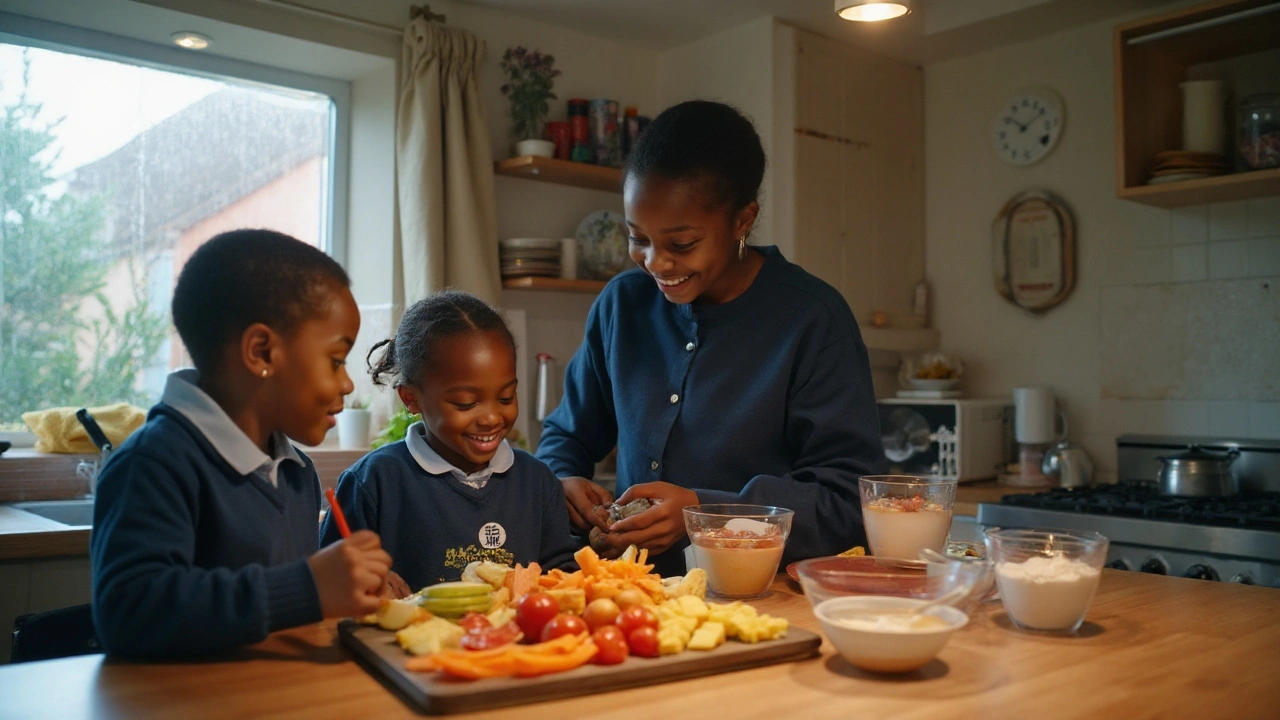Snack ideas that actually help your day should be easy, nutritious, and quick to grab.
Think small mixes of protein, fiber, and a bit of healthy fat. You want steady energy, less snacking later, and something you enjoy. Here are practical snacks and simple rules to keep you full and focused.
Quick grab and go snacks
Apple slices with two tablespoons peanut butter give fiber and protein and take two minutes to prepare. Greek yogurt topped with a handful of berries and a sprinkle of granola feels like dessert but feeds your muscles and gut. Hard boiled eggs are cheap protein you can keep in the fridge for days. A small handful of mixed nuts plus an orange balances carbs and fats without added sugar.
Snacks that help recovery and gut health
If you exercise, try a post workout juice or smoothie with banana, berries, and a scoop of protein powder to speed recovery. Fermented snacks like a small portion of plain kefir or probiotic yogurt support gut bacteria and digestion. Rice cakes topped with avocado and lemon work when you want something light but satisfying.
Kid friendly options mix fun and health: whole grain mini pancakes, hummus with carrot sticks, or yogurt parfaits made in jars will win on busy mornings.
Mindful snacking helps you eat less while enjoying flavors. Before you reach for food, pause and ask if you are thirsty, bored, or truly hungry. Sip water, wait five minutes, and if you still want food, choose a portion sized snack.
Prep saves time: portion nuts into small bags, chop fruit at the start of the week, and keep single serve hummus in the fridge. That small effort means you eat better when you’re tired.
Shopping tips: pick whole foods, read labels for hidden sugar, and favor plain over flavored yogurts. Swap chips for air popped popcorn or roasted chickpeas when snack cravings hit.
If you want ideas tied to meals, check our posts on healthy breakfasts, health juices, and kid friendly recipes for more snacks that fit your routine.
Start small: pick two new snack ideas this week and track how they affect your mood and energy. Small changes add up fast.
Simple recipes you can try: mix one cup Greek yogurt, half cup berries, one tablespoon chia seeds for a filling snack that supports digestion and protein needs. Blend one small banana, a cup of spinach, a quarter cup frozen mango, and water for a green juice that's easy on the stomach and full of vitamins. Make a savory snack bowl: half cup cooked quinoa, two tablespoons hummus, a few cherry tomatoes, and herbs for a balanced mini-meal.
When kids refuse new foods, involve them in prep. Let them choose a fruit, spread, or topping. Kids eat more when they help and when snacks look fun.
Store portions in clear containers, label with dates, and rotate older snacks to the front. Aim for variety. Try a different protein or fruit each week to keep cravings low and nutrients high. Small wins matter daily.

Why Healthy Snacks Are Essential for Kids: Science, Smart Picks, and Stress-Free Routines
Kids eat a lot between meals. Learn why smart snacks matter, what to serve, how much, and when-plus easy ideas, label tips, and fixes for picky eaters.
Read More
Healthy Snacks: The Secret Ingredient in a Balanced Diet
Why do healthy snacks matter so much in a balanced diet? This article shows how smart snacking fills gaps between meals, keeps energy steady, and curbs random cravings. You'll discover what actually makes a snack healthy, get tips for guilt-free munching, and even find out how snacks can help with weight management and mood. Easy strategies, quick facts, and real-life advice are waiting inside. No jargon, just the stuff that actually works in real kitchens.
Read More
Healthy Snacking for Kids: Nourishing Choices for Growing Bodies
In today's fast-paced world, ensuring your kids consume nutritious snacks can be a challenging task. This article delves into the importance of healthy snacking for children, providing practical tips and innovative ideas to incorporate nourishing choices into their diet. Learn about the profound impact wholesome snacks have on your child's growth, development, and overall well-being. Discover how to make healthy snacks appealing to young palates, thus fostering good eating habits that last a lifetime.
Read More